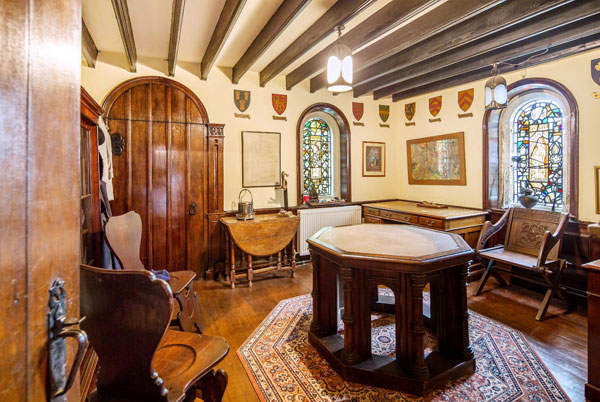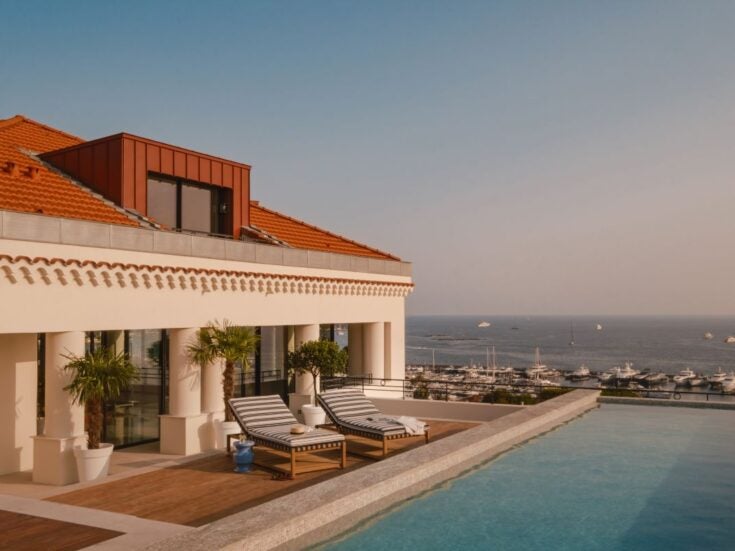

The debate over the significance of the Magna Carta has rumbled on for centuries, but has anyone considered (as the Daily Mail might ask) what its effect on property prices is? Now the island where it was signed is up for sale, so we might finally have an answer.
Sotheby’s have been instructed to sell the 3.72 acre Magna Carta Island in the Thames, which is said by historian Matthew Paris to be the location of the signing of the great charter in 1215. The property includes a large Grade II-listed house containing a specially designed ‘charter room’ built around an oak-framed stone upon which the signing is said to have taken place.
‘This is a once in a lifetime opportunity to buy a piece of world history,’ said Stuart Cole, head of region for UK Sotheby’s International Realty. ‘Not only is Magna Carta Island an idyllic private island in the Thames with 402 metres of prime river frontage, it is widely acknowledged to have been the site of the signing of the Magna Carta.’
However, not for the first time in history, there are those who take issue with the accuracy of an estate agent’s brochure. Sir Robert Worcester, founder of pollsters Ipsos MORI, is chairman of the Magna Carta Committee who are organising the 800-year commemoration of the constitutional keystone.
Asked whether he thinks the event took place on the island, he told Spear’s: ‘Probably not, and the idea [expounded by Sotheby’s and others] it was chosen by King John because it was out of arrow shot is a bit of a nonsense, because of course the barons came fully armed.’

Nevertheless, history hangs thick in the air: Richard de Montfichet, one of the 25 barons who proposed the charter, owned the island along with neighbouring Ankerwycke, another contender for the Magna Carta signing-crown, also rumoured to be where Henry VIII conducted his first meetings with Anne Boleyn.
The island is surrounded by land belonging to the American Bar Association, who erected a memorial to the singing in 1957, and to the National Trust, who Sir Robert believes would be best placed to take up ownership.
However, that seems unlikely: speaking to Spear’s, Geri Silverstone, the Trust’s project director for Magna Carta’s 800th Surrey Partnership, said: ‘The National Trust and local partners have very ambitious plans for the transformation of the visitor experience at Runnymede, however the purchasing of Magna Carta Island at present does not feature among them.’
Putting the house on the market the year before Magna Carta’s big anniversary has been described as ‘entrepreneurial’ but it looks set to remain in private hands rather than a monument for the nation. The Magna Carta Committee won’t be bidding for it due to the £3.95 million price tag; staging the British Library’s biggest exhibition, launching a new £2 coin and releasing a Magna Carta anthem are all part of the planned events for 2015.
But if the committee could take ownership of the island as well, Sir Robert says, ‘It would be a very good thing – the house would make a most suitable and central location for an education interpretation centre… If there’s a rich benefactor, apply here please!’
Someone who would benefit from a little Magna Carta education is David Cameron. Sir Robert jokes about how he wrote to the prime minister after he was embarrassed by failing to answer David Letterman’s question about where Magna Carta was signed. ‘I wrote to him the following day and said, “If I’d only had a word in your earpiece, you could have said: ‘Nowhere, it was sealed.'”‘
Apparently the previous owner of Magna Carta Island liked to keep 40 Maseratis parked on the driveway. It certainly seems a curious irony that the location where so many of the state’s cherished liberties were made law looks set to remain a potent symbol of private wealth rather than a public museum.






